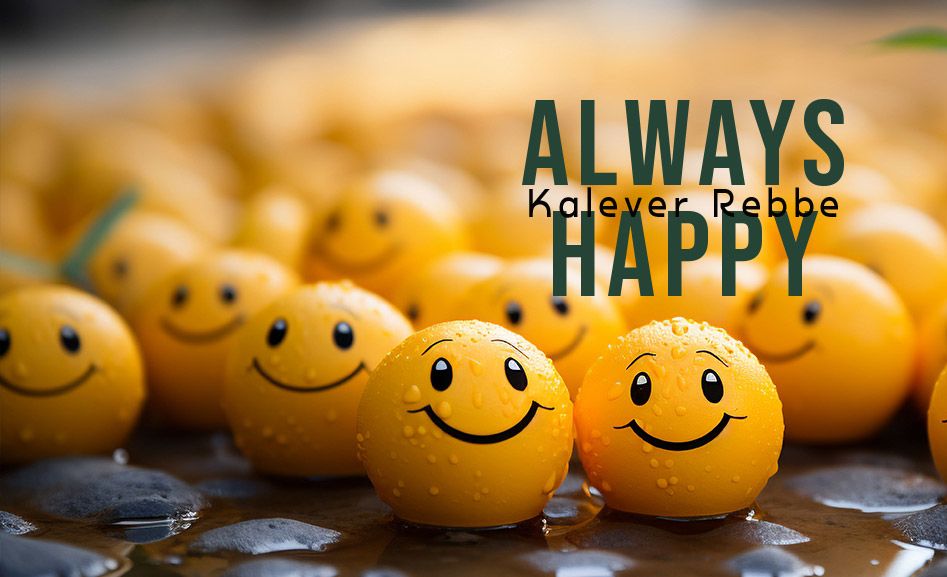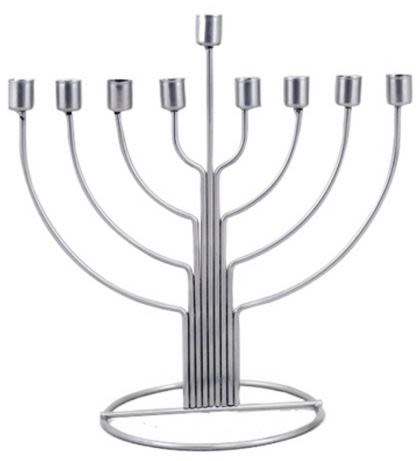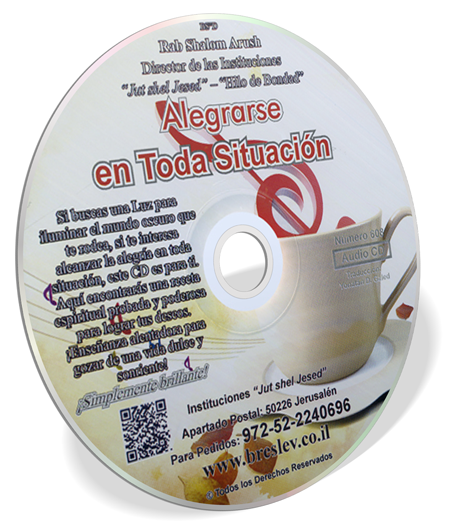
Save Me!
Rebbe Nachman had to escape from Tiberias; he climbed the high stone walls and suddenly slipped. He grabbed a protruding stone, but was suspended between heaven and earth...

Two people were sick with the same exact illness and with equal severity. Both prayed but one recovered and the other died. Why? Two people were accused and tried for committing crimes of equal seriousness that incur equal punishment. Both prayed but one was sent to the gallows while the other was set free. Why? What’s the difference between the two?
Rebbe Meir Baal HaNess answers the above questions, which the Gemara asks in tractate Rosh Hashanah. He says, “One prayed a whole prayer while the other did not.” For weeks, I prayed to Hashem to illuminate my eyes and show me Rebbe Meir’s real inner meaning of what constitutes a “whole prayer”. Finally, Hashem blessed me with the light of understanding – “a new light on Zion”, which I will share with you today.
Recently, an upright young man from a wonderfully righteous family drowned. My driver asked me how he could do something so irresponsible as going into the Mediterranean when he doesn’t know how to swim. I told my driver that the young man was not irresponsible – it was a Heavenly decree. It was enough that he stepped knee-deep in the water and the strong undercurrent of one massive wave could drag him out to sea. Why did this young man drown?
In amazing similarity to the above mentioned story from the Gemara, another young man – this one a strong swimmer – went to the beach for a swim at the same place where the first young man drowned. He too, from less than waist-deep water, was swept to sea by a sudden massive wave with an undercurrent  that had the power of the Tel Aviv to Haifa train. Despite his swimming prowess, he was helpless. His whole life flashed before his eyes. He began screaming to Hashem between being successively submerged in the raging current and gasping at the surface for enough air that will let him live for another few seconds. This was a fight for his life. “Hashem, you have to save me!” Dunk. Then fighting to the surface again, “Hashem, I can’t die! My wife – my young sons – who’ll care for them?” Dunk. Then grasping for air once more, “Hashemmmmmmmmmmmm – you’re not going to let me die! You’re my Father – Abaaaaaaaaaaa! Save me…” At that point, a wave came in the reverse direction, pulled him out of the current and carried him the entire distance back to shore, nearly a kilometer or more than half a mile.
that had the power of the Tel Aviv to Haifa train. Despite his swimming prowess, he was helpless. His whole life flashed before his eyes. He began screaming to Hashem between being successively submerged in the raging current and gasping at the surface for enough air that will let him live for another few seconds. This was a fight for his life. “Hashem, you have to save me!” Dunk. Then fighting to the surface again, “Hashem, I can’t die! My wife – my young sons – who’ll care for them?” Dunk. Then grasping for air once more, “Hashemmmmmmmmmmmm – you’re not going to let me die! You’re my Father – Abaaaaaaaaaaa! Save me…” At that point, a wave came in the reverse direction, pulled him out of the current and carried him the entire distance back to shore, nearly a kilometer or more than half a mile.
The second young man wasn’t saved because of his swimming prowess. He screamed out to Hashem with all his might, for he knew that his life depended on those few moments of prayer. What’s more, he believed that Hashem would save him. This is the light that Hashem illuminated my heart with. “Whole prayer” is prayer with two key elements: first, it is prayer from the inner walls of the heart, a life-and-death scream; second, it is prayer with emuna. The second young man believed that Hashem not only would save him but that Hashem – the loving Father – wanted to save him.
This is the way we should pray.
People ask me, “Rabbi, the Gemara says elsewhere that a person should ask for a free gift and not make demands of Hashem. You yourself wrote this in several of your books. Now, are you telling us differently?”
The answer is no. When it comes to material needs, one must not make demands of Hashem; he or she must ask for a free gift with the knowledge that Hashem owes them nothing. But, when it comes to spiritual needs that our life depends on, one must scream, “Hashem, save me!”
When Rebbe Nachman visited Tiberias in the Land of Israel, a terrible plague broke out. The Governor of Tiberias sealed off the city and wouldn’t let anyone in or out. Rebbe Nachman had to leave, so he climbed the high city walls hoping to find a way to escape. Once he got to the top of wall, he began walking, looking for a way to safely descend to the other side. Unexpectedly, he slipped. He grabbed a small protruding stone and was hanging between heaven and earth. He was slipping and would soon fall to oblivion, Heaven forbid. He screamed, “Hashem, save me!” Hashem did; instantaneously and inexplicably, Rebbe Nachman made it back to safety.
Rebbe Natan said that Rebbe Nachman told the above story often. He would say, “This is the way to pray, as if your life imminently depends on this prayer!”
Rebbe Nachman reached his lofty level by virtue of the power of his prayer. Every day, he’d scream out to Hashem, “Hashem, being far away from You is death! You must bring me closer!” Rebbe Nachman knew that he had to make spiritual gain every day – failure to do so was for him tantamount to spiritual death. No wonder he cried out to Hashem like that.
We too must realize that a breach in personal holiness is virtually death – it kills a person’s livelihood, his marital peace, his connection with Hashem and his taste for Torah and mitzvot. That’s why we must also cry out to Hashem, with the full belief that Hashem will save us. Yet, we must be real. Before we use the weapon of the scream, we must have the true desire for what we’re screaming about. So, don’t scream to Hashem to save you until you have your “certificate of desire”; you get that by praying for 30 minutes a day for what you want, such as guarding your eyes and personal holiness.
Don’t ever forget the two preconditions for your prayers to pierce the Heavens: first, believe that Hashem will rescue you; and second, devote a daily 30 minutes to asking Hashem for what you want. May you succeed!










2/15/2023
If I believed Hashem will save me, I would not be crying out. How do you get to that state of trust if you suffer constantly from fear and anxiety? Especially about health.